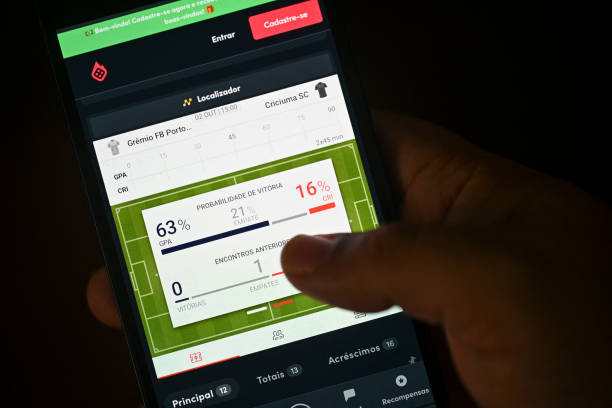
Sports betting has undergone a dramatic transformation over the centuries, evolving from basic wagers among friends at local events to a global, multi-billion-dollar industry. The rise of technology, regulation, and consumer demand has turned traditional bookmaking into a dynamic ecosystem. This article explores the evolution of bookmakers and betting markets, highlighting how innovation, legislation, and user behavior have reshaped the world of sports betting.

🏛️ Ancient Roots: The Birthplace of Sports Betting
The earliest forms of sports betting trace back to ancient civilizations. Greeks placed wagers on Olympic events, and Romans popularized betting on gladiator fights and chariot races.
- Early Betting: Informal and unregulated
- Popular Sports: Athletics, wrestling, gladiator combat
- Bookmakers: None as we know them today—bets were person-to-person
Though primitive, these wagers laid the foundation for the structured betting markets we recognize today.
1. 📜 The Rise of the Bookmaker: From Street Corners to Legitimacy
The first modern bookmakers emerged in 18th-century England, mainly around horse racing tracks. They would “book” bets and odds from the public—hence the term.
- Legal Grey Area: Betting was often seen as a vice
- Odds Making: Done manually based on local knowledge
- Record Keeping: Physical ledgers and notebooks
These early bookmakers operated on trust, reputation, and community standing.

2. 🐎 Horse Racing: The Original Betting Market
Horse racing is widely regarded as the sport that gave rise to the structured betting markets we have today. It introduced key concepts such as:
- Fixed Odds
- Each-Way Bets
- Handicaps and Toteboard Systems
Racing also saw the rise of the pari-mutuel system in France, where all bets go into a pool and winnings are distributed proportionally—a precursor to the pooled betting seen in lotteries today.

3. 💻 The Digital Revolution: Online Bookmakers Arrive
The launch of the internet in the mid-1990s revolutionized sports betting. Suddenly, bettors didn’t need to visit physical bookmakers or tracks.
- First Online Bookmaker: Intertops (1996)
- Key Features: Instant odds, live betting, and account management
- Global Reach: International access to sporting events 24/7
Online bookmakers expanded betting markets exponentially, offering bets on sports from cricket to eSports.
4. 📱 Mobile Betting: A Game Changer
The advent of smartphones brought sports betting to the fingertips of millions. Mobile apps introduced seamless interfaces, push notifications, and location-based services.
- In-Play Betting: Wagers placed in real time during matches
- Cash-Out Options: Control your bet before the game ends
- Multi-Bet Builders: Combine outcomes across sports or within one match
Today, mobile betting accounts for over 70% of all online wagers globally.

5. 🎮 eSports and New-Age Betting Markets
In recent years, sports betting has expanded beyond traditional sports into emerging areas like:
- eSports Betting: Games like Dota 2, CS:GO, and League of Legends
- Virtual Sports: AI-generated simulations for 24/7 betting
- Political & Entertainment Markets: Betting on elections, award shows, and reality TV outcomes
These markets attract a younger, more digitally native audience and have forced bookmakers to adapt their platforms and risk models.
6. 🔢 The Role of Data and Algorithms in Modern Bookmaking
Today’s bookmakers don’t rely solely on intuition—they harness big data, machine learning, and predictive modeling to:
- Set Odds with mathematical precision
- Adjust Live Lines based on real-time events
- Track User Behavior for personalized offers and risk mitigation
Algorithms now detect betting anomalies and automate risk control, making betting markets more efficient and secure.
7. 🏦 Regulation and Compliance: From the Wild West to a Legal Framework
For decades, sports betting existed in a legal gray zone. That changed as governments began to see the economic benefits of regulation.
- UK Gambling Act (2005) – Created a national gambling commission
- US PASPA Overturned (2018) – Legalized sports betting at state level
- European Union and APAC Models – Varying regulation by jurisdiction
Legalization has brought legitimacy to bookmakers, but also stricter compliance requirements, such as identity verification and responsible gaming protocols.
8. 🧠 Betting Exchanges and Peer-to-Peer Wagering
The rise of platforms like Betfair introduced a new model—betting exchanges—where users bet against each other instead of the bookmaker.
- Benefits: Better odds, lower margins, user-driven liquidity
- Risks: Requires more skill and understanding
- Popularity: Niche, but growing among savvy bettors
Exchanges challenge traditional bookmakers and represent a democratization of the sports betting process.
9. 🌍 Globalization and Localization of Sports Betting Markets
Bookmakers now tailor their platforms to regional preferences:
- Africa: Focus on mobile-first, data-light apps
- Asia: Emphasis on in-play betting and football
- Europe: Sophisticated markets with enhanced bet builders
- North America: Rapid adoption post-legalization, led by NFL and NBA wagering
Localization is key to capturing loyalty in a hyper-competitive industry.
🧭 The Future of Sports Betting: What Comes Next?
As the industry continues to evolve, here are key trends to watch:
- Cryptocurrency and Blockchain Integration
- AI-Powered Betting Assistants
- Augmented Reality Betting Interfaces
- Social Betting Communities
- Sustainability and Ethical Gambling Movements
The evolution of bookmakers and betting markets shows no sign of slowing down. What began as informal wagers in ancient times has now become a high-tech, regulated, and global business.
SUGGESTED FOR YOU
🎯 Final Thoughts on the Evolution of Sports Betting
The journey of sports betting from rudimentary chariot race wagers to algorithm-driven global platforms highlights the resilience and adaptability of the industry. With bookmakers evolving from street-side recorders to tech-savvy digital platforms and betting markets diversifying far beyond traditional sports, one thing is certain—betting will continue to mirror and influence the world around it.









